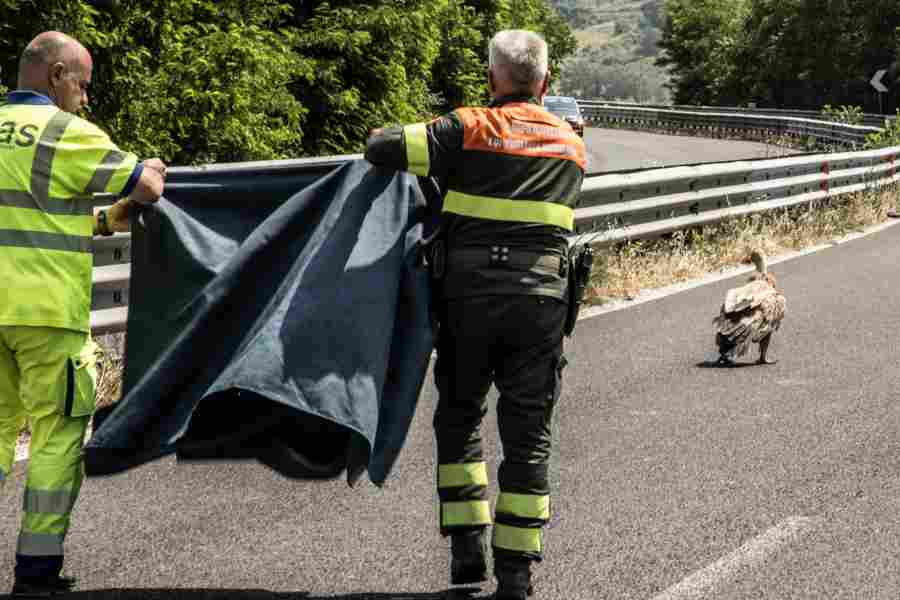Last week we reported that at least 8 griffon vultures, and several other animals (wolves, foxes and other raptors), had been found dead in Kresna Gorge, illegally poisoned. The number of dead griffons now found totals 18, and we estimate that at least 30 animals may have died – a significant blow to the local population, which had been restored there after years of painstaking work by local conservation organisation Fund for Wild Flora and Fauna (FWFF).
The griffon vultures found dead constitute the bulk of the local breeding population. The griffon vulture went extinct in Kresna 60 years ago due to the intensive use of poison, mainly strychnine to combat predators. After 15 years of enormous vulture conservation efforts implemented mainly by FWFF, the species returned to the area. Last year there were two new established breeding pairs. This year there were expectation that the number of breeding pairs would increase.
Poisoning is the main threat to vultures everywhere, but unfortunately it still is relatively common in areas where livestock breeders use illegal poison substances to combat predators (manly wolf). It is suspected that in this case a carcass from a dead cow was poisoned.
The team of the Fund for Wild Flora and Fauna (FWFF), with support from Green Balkans, the Bulgarian Society for the protection of Birds (BSPB), and the birds of Prey Protection Society of Bulgaria (BPPS) – practically all bird conservation organizations in the country – are doing whatever they can to mobilize the authorities to act. A dog that was specially trained for detection of poison baits or poisoned animals in the field within the LIFE project Re-Vultures is also being used. The authorities at first ignored the incident, but have now sprung into action.
The relevant authorities have already collected samples and confirmed it was a poisoning incident with the use of carbamates. Samples for further detailed toxicological analyses will be sent to labs abroad, in order to determine the exact poison substance used, within the framework of the Life project Vultures Back To Life. Together with FWFF we are establishing contact between the Bulgaria official vet service and one Spanish lab, so that any results can be recognized by court.
Two immediate lessons can be learnt from this incident: the need to act quickly when the first signs of poison are found – even if is only one bird or one feral dog – this may be the tip of the iceberg; there ned to involve the relevant authorities from the very start.
The VCF is very much active in the efforts to mitigate poison activities in Bulgaria, and is organising a national seminar on this issue this month in Sofia – this has now become even more important and relevant.




